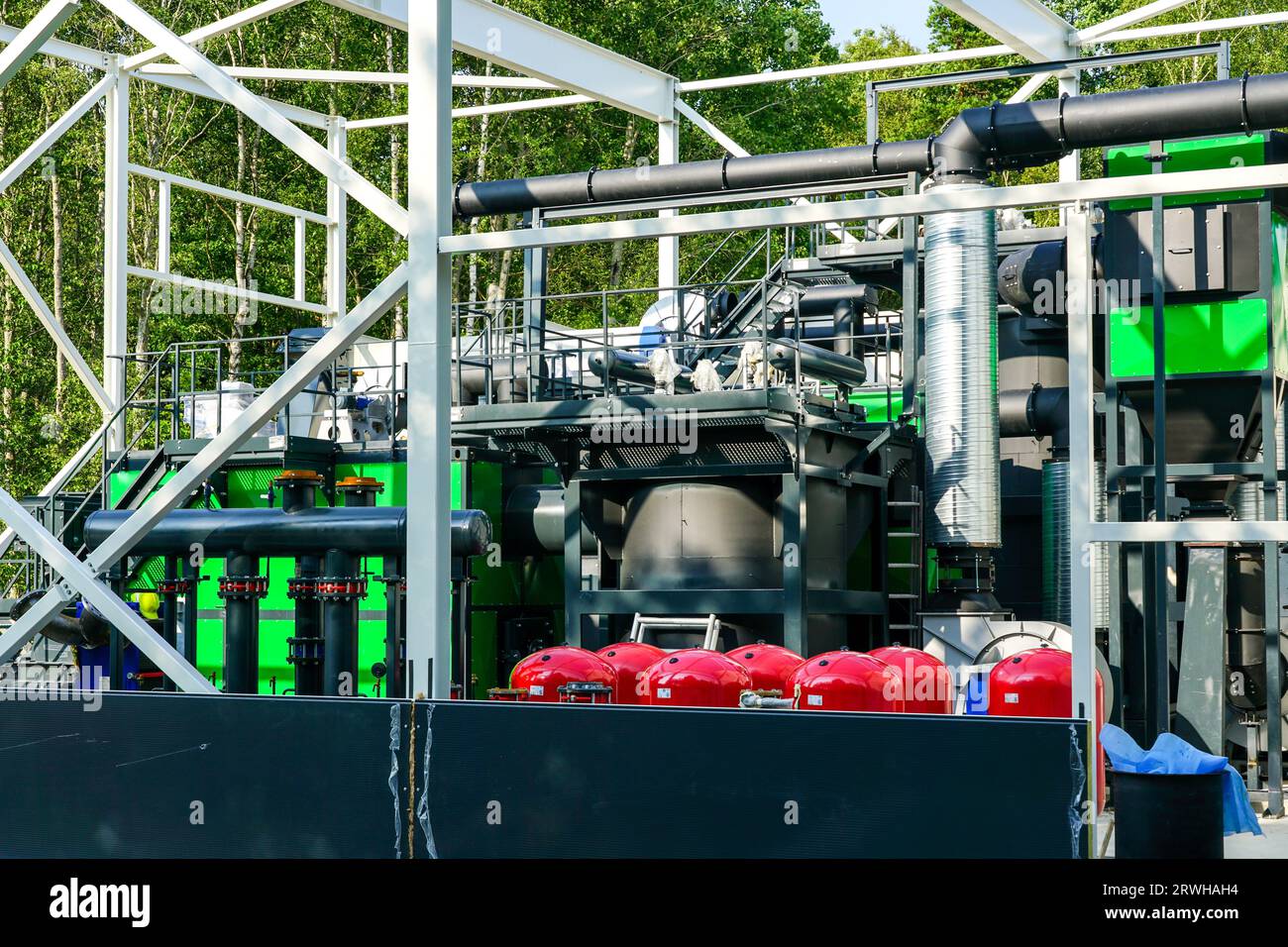What is a Wood Boiler : Efficient Heating with Renewable Energy
Wood boilers are a popular heating option, especially for those who have access to a ready supply of wood. In this guide, we will explore what wood boilers are, how they work, their benefits and drawbacks, and whether a wood boiler is the right choice for you.
What is a Wood Boiler?
A wood boiler, also known as a biomass boiler, is a type of heating system that uses wood as its primary fuel source. Unlike conventional heating systems that rely on electricity, natural gas, or oil, wood boilers burn wood to produce heat. This heat is then transferred to water, which is circulated through the house or building to provide warmth.
How Do Wood Boilers Work?
Wood boilers work by burning wood in a combustion chamber, which then heats a water reservoir. The hot water is circulated through piping to radiators, underfloor heating systems, or heat exchangers, providing warmth to the space. Some wood boilers can also be connected to existing central heating systems or hot water tanks.
The Benefits of Wood Boilers
There are several benefits to using a wood boiler for heating:
- Renewable Energy Source: Wood is a renewable and sustainable energy source, making wood boilers an eco-friendly heating option.
- Cost-Effective: For those with access to free or low-cost wood, a wood boiler can lead to significant cost savings compared to traditional heating methods.
- Independence from Fossil Fuels: Wood boilers provide independence from fluctuating fuel prices and reliance on non-renewable energy sources.
- Carbon Neutral: Wood boilers emit carbon dioxide, but the amount released is equivalent to the carbon dioxide that the trees absorbed during growth, making them nearly carbon-neutral.
Potential Drawbacks of Wood Boilers
While wood boilers offer many advantages, there are also several potential drawbacks to consider:
- Effort and Maintenance: Wood boilers require regular maintenance, including cleaning the ash, inspecting the chimney, and ensuring proper ventilation.
- Wood Availability: The availability of wood can vary depending on location, and the effort of sourcing and chopping wood should be considered.
- Storage Space: Storing a large supply of wood can require significant space, whether it be as logs, chips, or pellets.
- Regulatory Compliance: Some areas have regulations on the use of wood boilers, requiring compliance with emission standards and obtaining necessary permits.
Is a Wood Boiler Right for You?
Whether a wood boiler is suitable for you depends on factors such as your location, access to wood, and your willingness to invest time in maintenance and fuel sourcing. If you are environmentally conscious, have access to affordable wood, and are willing to commit to the upkeep of a wood boiler, it could be an excellent heating option for you.
Alternatively, if sourcing and maintaining wood seems daunting, or if you live in an area with stringent regulations, you may want to explore other heating options that better suit your circumstances.

Credit: www.alamy.com
Frequently Asked Questions For What Is A Wood Boiler : Efficient Heating With Renewable Energy
What Is A Wood Boiler?
A wood boiler is a heating system that uses wood as its primary fuel source to provide heat for a building’s heating and hot water systems.
How Does A Wood Boiler Work?
Wood boilers burn wood to produce heat, which is then circulated through pipes to heat the building and provide hot water.
Are Wood Boilers Environmentally Friendly?
Yes, wood boilers are considered environmentally friendly as they use a renewable energy source and produce minimal emissions when operated properly.
What Are The Advantages Of Using A Wood Boiler?
Using a wood boiler can lead to reduced energy costs, provide a sustainable heating option, and lower the carbon footprint of a building.
Conclusion
Wood boilers can be a practical and eco-friendly choice for heating, offering independence from fossil fuels and potential cost savings for those with access to a readily available wood supply. However, it’s essential to carefully consider the maintenance, fuel sourcing, and regulatory aspects before deciding if a wood boiler is the right choice for your heating needs.
Thank you for reading our complete guide to understanding wood boilers. We hope this has provided valuable insights into this heating option.





